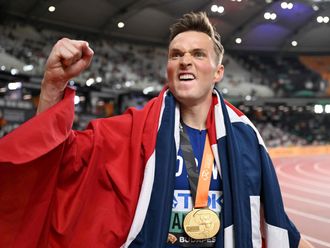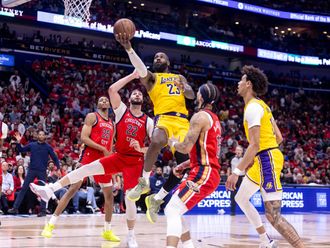Los Angeles: A seismic shift in relations with Cuba had many in US baseball salivating on Thursday at the prospect of a flood of talent from the Caribbean country where America’s “national pastime” is a passion.
Major League Baseball made a measured response to the news on Wednesday that the United States and Cuba would end five decades of Cold War hostility and move to revive diplomatic ties and ease a crippling US trade embargo.
The sanctions, and Cuba’s refusal to allow players there to seek employment in the United States, have made for an arduous path for Cuban baseballers who defy their government and seek to pursue careers in America.
Amid speculation that the trickle of talent from Cuba could become a torrent, and the country could surpass the Dominican Republic and Venezuela as top Latin American sources for Major League players, MLB and the players’ union were cautious.
“While there are not sufficient details to make a realistic evaluation, we will continue to track this significant issue, and we will keep our clubs informed if this different direction may impact the manner in which they conduct business on issues related to Cuba,” Major League Baseball said in a statement.
Added the union: “We will watch this situation closely as it continues to unfold and we remain hopeful that today’s announcement will lead to further positive developments.”
Before Fidel Castro’s rise to power in 1959, Cuban-born players played in Major League Baseball and the American Negro Leagues.
Once ties were cut between the countries, Cuban players often faced an arduous journey if they were to pursue professional careers.
In April, Los Angeles Magazine published a dramatic account of Los Angeles Dodgers outfielder Yasiel Puig’s flight from Cuba involving human trafficking, a Mexican drug cartel and death threats.
In November, a federal judge in Miami sentenced Eliezer Lazo to 175 months in prison for smuggling more than 1,000 Cubans, including several baseball players, to the United States.
The department of justice said the group he led charged $10,000 or more per head and increased the fee for baseball players, who also had to pledge part of their earnings as professional athletes.
Leonys Martin of the Texas Rangers was among those smuggled into the country by Lazo, who was already serving a five-year term for money laundering.
Normalisation of relations between the United States and Cuba could make dangerous defections a thing of the past, but Cuban players will still be bound by rules that govern the signing of international players and Cuba’s Serie Nacional will be reluctant to see a wholesale exodus of the country’s best players.
It’s possible MLB and Cuban baseball will agree to an arrangement similar to the posting system by which the Japanese league receives up to $20 million to release a player to Major League Baseball.
“We are hopeful that President Obama’s plan for normalisation will prove to be a good and productive thing for both nations and for the baseball communitys in both countries,” Red Sox president Larry Lucchino told the Boston Herald. “It is an exciting development.”












